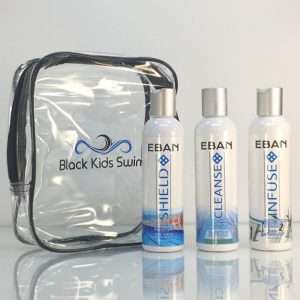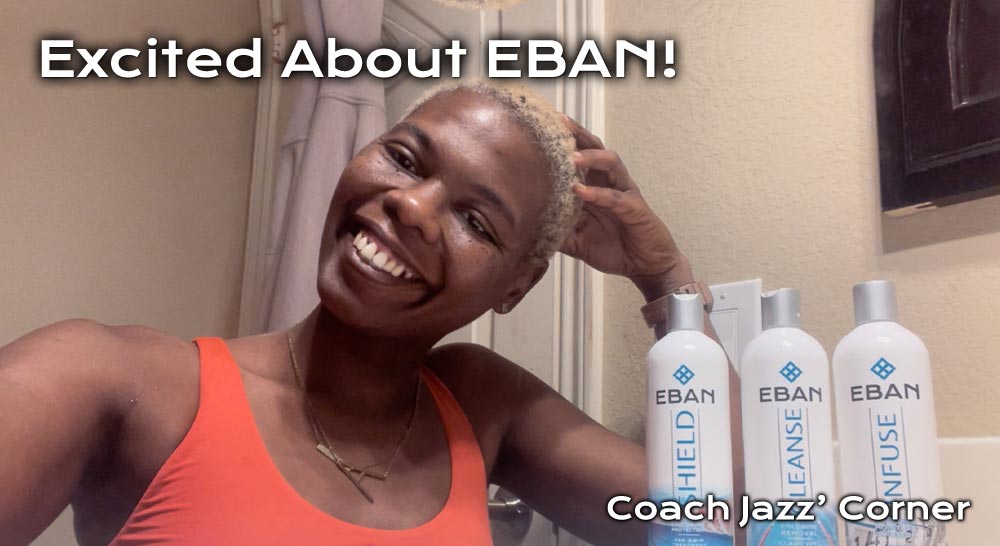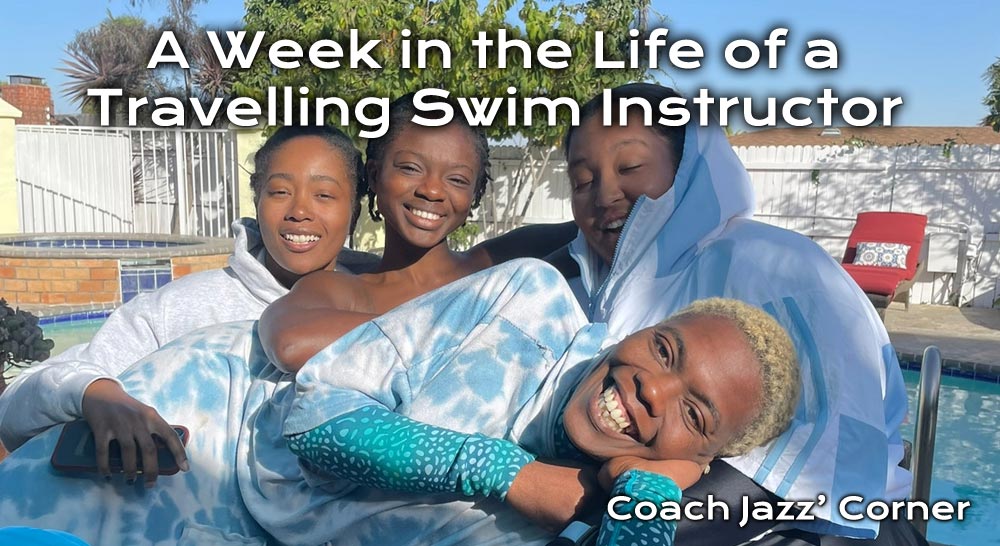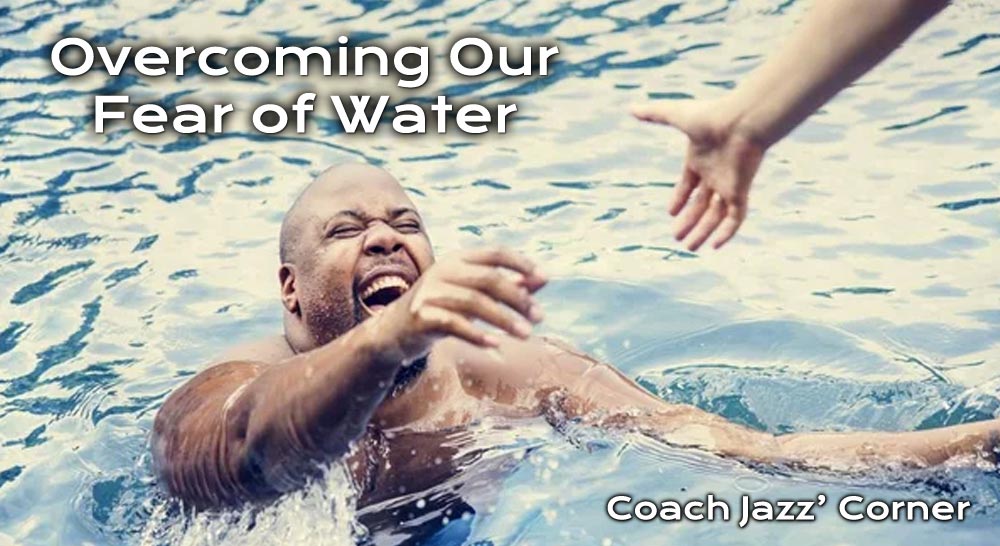Black Kids Swim Interviews Swim Legend Jim Ellis
In 1971, Jim Ellis founded an African-American swim team called PDR. The initials stood for both Philadelphia Department of Recreation, and also Pride Determination Resilience. His story is chronicled in the feature film ‘Pride.’ In 2007, Jim Ellis received the Presidential Honor Award from the International Swimming Hall of Fame.
More than 40 years later, Jim Ellis is still at it. He is head coach of the Salvation Army Kroc Aquatics (SAKA), Philadelphia’s premiere competitive swimming program. SAKA practices in the Salvation Army’s Philadelphia based Kroc Center, a pool which Ellis was instrumental in designing.
The annual SAKA swim meet held during President’s Day weekend is a must for young Black swimmers. Black Kids Swim attended the meet in 2017 and had the opportunity to ask Ellis his opinion on developing elite Black swimmers, what parents should consider when choosing a swim team, and what is needed to truly diversify the sport of swimming.
Black Kids Swim is grateful to Jim Ellis for all he has given to the sport of competitive swimming and everything he continues to do for aspiring swimmers.
BKS’s Interview with Jim Ellis Transcription
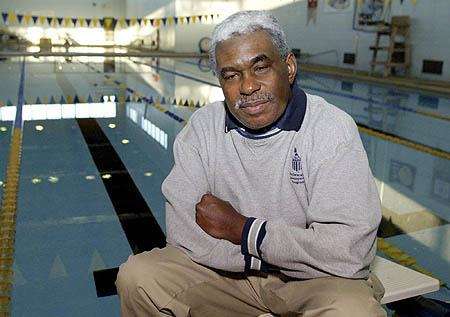
Jim Ellis
BKS: Mr. Ellis we talked earlier about the triangle of accountability. Between the parent, the swimmer and the coach. Can you tell us a little bit about that and how that make all the difference in a child going from being an average swimmer to an elite swimmer?
Jim Ellis: Triangle of accountability is something I developed in getting people to share the responsibility of developing youth. I also used it in my classroom and making sure that education was viable and getting the job done. I feel that the three components the parent the swimmer and the coach are all accountable to each other in the process of developing and young athlete.
The coach has the responsibility for the parent in the swimmer, the parent to the coach and the swimmer to the coach and the parent. If all three of these things are working you have a successful situation and you have a successful training environment and you have a situation where there will be growth for everyone in the sport.
BKS: There’s a lot of swim parents who notice a natural ability in their child and they want to make sure that they’re giving their child the best opportunity to move to the next level. What advice would you give a parent in that situation?
Ellis: If you think your child has some natural ability and they want to pursue the sport of swimming I think that the onus was on the parent to find the best program that will work for them and their child. Different coaches have different philosophies, different programs apply the sport differently and I feel that the parent’s job is to find a program that fits their child, their child’s learning style and also fits the family’s situation and what they’re looking for in a program to help develop their young athlete.
Because if the fit’s not right then you need to look around and find the one that does fit. I think one of the biggest mistakes most families make is they settle in on convenience. They get the program that’s the closest to them that might not be the best program but they’ll settle for that because it’s less time, you know and as parents that we’re obligated to make sure our child gets the best.
We’ll do that for education, we’ll go an hour two hours away to sell this is the best school but for programs such as swimming they make that secondary. They think they’re doing the best but they settle for something less and I think that’s that’s one of the biggest mistakes that I see and a lot of people and choosing the program just because it’s that’s easily accessible and it’s convenient.
BKS: You mentioned that every family has a different situation but for children between the ages of 11 and 13 who are practicing two days a week, three days a week, one time a day and they say that they want to be serious swimmers what would you say to them about changes they might need to make any routine?
Ellis: Well swimmers in that age, you said 11 to 14? 11 to 13? That’s a crucial age. That’s a developmental stage and every child develops differently physiologically, so you may have 11 year older on the birth certificate but they may be 13 with their development you may have a 13-year older that might only be 11 in a development.
As a parent you need to know that but also the coach should be aware of that and not ask too much too soon of the athlete. If your child is 11 and other 11 year olds are swimming twice a day and you say “well I want my child swimming twice a day” that might be the biggest mistake you can make because your child might not be mentally or physically prepared to handle that.
So again putting in the right amount of work, putting in the right amount of time it’s critical in knowing your child and your coach knowing your child because you can’t try to have your child keep up with somebody else in their development. Because kids mature different stages in their careers and their development as well.
BKS: Last question Mr. Ellis. You’ve been in the sport a long time and you’ve seen it slowly diversify. What would you like before deployment to look like 15 years from today?
Ellis: Like 15 years from today? That’s hard to say. I’d just like to see us when you talk about diversifying the sport I’d like to see an African-American community more business-minded in pursuing swimming. I’d like to see us have more facilities, access to more facilities, quality facilities that will allow us to get the job done.
I’ve been very fortunate that I’ve had unlimited pool time in my forty plus years in applying a competitive program and applying my trade. Every one that hasn’t hasn’t had that situation and that’s not just in in the African-American community a lot of communities struggle to have pool time so I feel I’ve been very fortunate in that area but I would like to see that. More pools are being built. More universities are building 50 meter pools.
I’d like to see universities open their doors more to the community and not be such closed shops over there and just close to their are faculty and staff. I think they could open up more to community-based programs.
BKS: Thank you for your time Mr. Ellis. And thank you for your support of our swimmers and for Black Kids Swim as well.
Ellis: Thank you
Ebony is a wife and mommy of two gorgeous swimmers. She started Black Kids Swim to help parents (like herself!) who want to be supportive swim parents to African American children.

